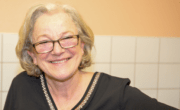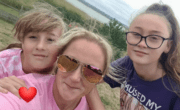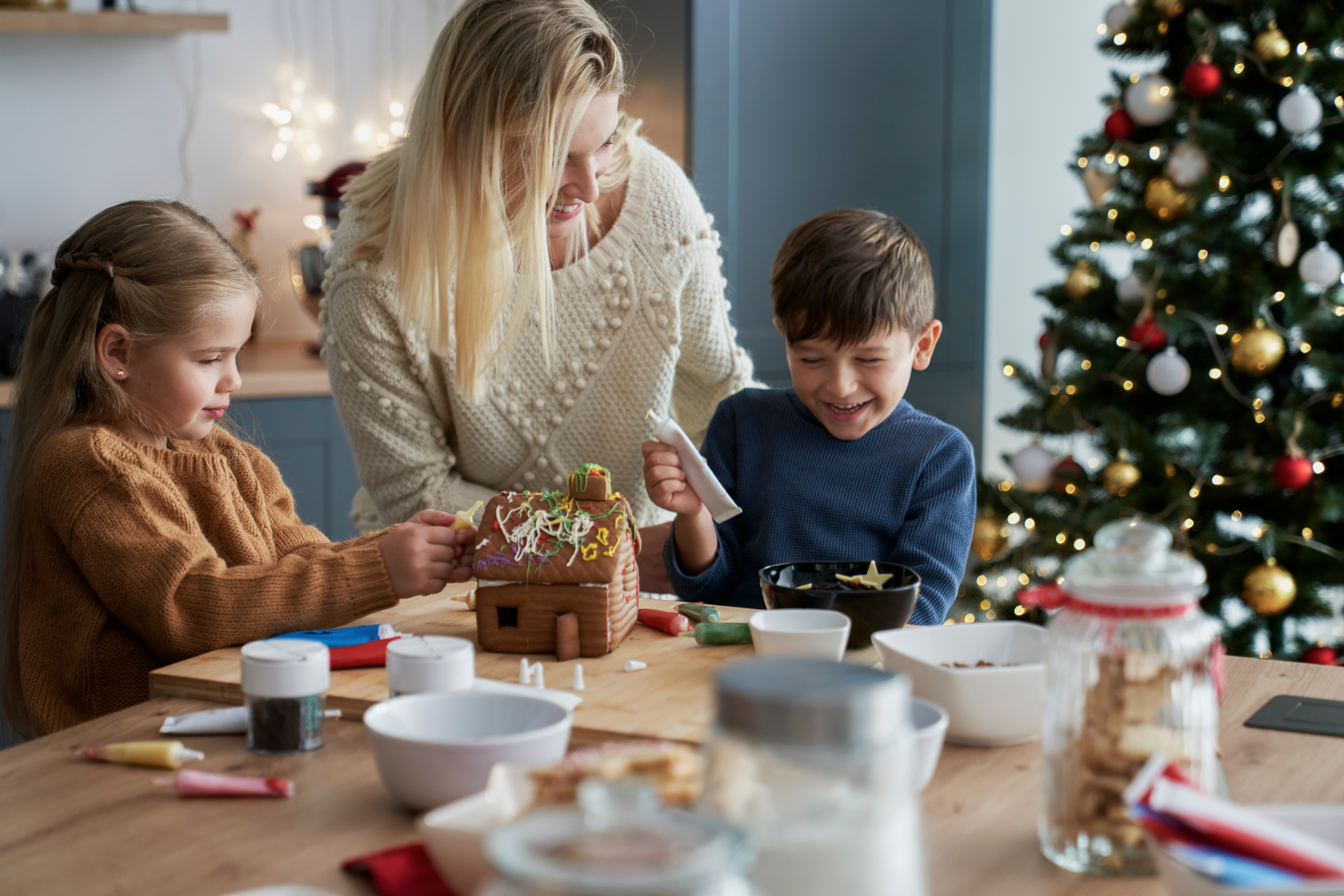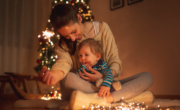Tanya, a Project Worker with our Adopteens service, delivered by PAC-UK shares her own experience of being adopted and how it has helped her work in adoption
“Don’t go and work in a profession because you want to fix yourself” was the advice my practice educator gave me whist doing my final year social work placement. I wish it was as simple as that for me though, for one of the reasons I wanted to work in adoption was because on a deep level I didn’t think I was smart enough or capable enough to work in anything else. Everything else was far too scary. I had only ever had one interview in my life and that was to get on to my social work degree. I cried all the way home from the experience feeling such a failure and wondering what the hell I had done. When I got a place on the course, I thought it was an admin error and was waiting for the apology phone call for weeks.
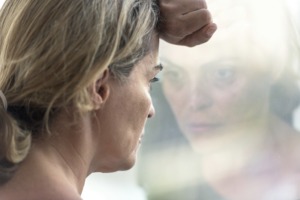 The world of adoption was safe for me, how could I go that wrong when it was my experience. I know adoption, it is in my bones. I could get the complexities of the emotions that go with it without having to study for it. I knew how hard compassion was to reach, yet how essential it was for good relationships and finding acceptance. I didn’t need training for that. And, I knew how messy it could be a lot of the time, with no answers. I certainly didn’t need a certificate for that. I felt I could do a good enough job because of my experiences. I knew I could apply them to support others, and I knew I was such a try hard, people pleaser (because that’s how I sought approval of myself) that I would listen, learn and always do my best.
The world of adoption was safe for me, how could I go that wrong when it was my experience. I know adoption, it is in my bones. I could get the complexities of the emotions that go with it without having to study for it. I knew how hard compassion was to reach, yet how essential it was for good relationships and finding acceptance. I didn’t need training for that. And, I knew how messy it could be a lot of the time, with no answers. I certainly didn’t need a certificate for that. I felt I could do a good enough job because of my experiences. I knew I could apply them to support others, and I knew I was such a try hard, people pleaser (because that’s how I sought approval of myself) that I would listen, learn and always do my best.
I look at the irony of this 5 years later with bemusement. I ended up working in adoption (a job I love by the way) not because I doggedly pursued it out of desire, or out of an angry revolt to change the system, but because of the limitations of my self-belief which is (partly, not solely) a result of my adoption and life experiences, some of which have been deeply traumatic.
I was relinquished at birth which was not that common in the mid 80’s but more common than it is now. There was no letterbox, no later life letter, no meeting with birth parents, no adoption support and no birth parent support. Not a lot of anything, which was just how it was and I nor my family questioned it. A vast distance to the world of adoption that I work in now.
My experience of adoption is complex. My adoptive parents did the best they could I’m sure and I now have great compassion for them, but my adoptive mother was an alcoholic until I was 20 and my parents divorced when I was a young teenager. Without going into detail, I think it would be fair to say I might have ended up in the care system if events were to unfold today as they did when I was a child growing up with them. At the very least we would all have had far more support.
“My experience of adoption is complex.”
I contacted my birth parents when I was in my mid 20’s and did this with the help of social services, who were the biggest safety net for me and held me in this overwhelmingly bonkers period of my life. I am a passionate advocate of people searching and doing reunions with this support, because the reverberations of what you find, or do not find spread wide and last long. My birth parents married after they had me and had 4 more children. A scene I was not expecting to uncover. We had contact from when I was 24 to 30 and met several times, but I feel (I cannot speak for them), that facing all of the past and merging our futures was too difficult and too painful at that moment in time. I am 34 now and I do not know what lies ahead.
The trauma of the experiences I suffered as a child, a teenager and as a young adult who tried to grapple with her story and connect with her birth family, most certainly impacts me today. To sum it up briefly the experiences I’ve had have resulted in: low self-worth; anxiety; a need to please people, followed closely by a desire to be liked by everyone; an affinity with sadness and anger and a complex relationship with love. I often feel great shame to admit these aspects of myself and think that people will think I’m an attention seeking victim (and if there are any fans of Brené Brown out there I’m going to have a nasty vulnerability hangover when this goes public), but I think we could all be a little more honest about our vulnerabilities, as my awareness and openness of them helps me manage them and hearing about others vulnerabilities makes me feel less shame. I love the fact that mental health awareness is on the rise and people are sharing more! Good mental health underpins everything in my opinion, it’s what holds us together.
Working in adoption has undoubtedly helped me with my own personal story, how could it not? I learn things every single day from the people I meet and the work I do, and it is endlessly fascinating and helpful to me, giving me new perspective. I am regularly triggered by stories I hear or training I do, it is part and parcel of my everyday life in this field, and yes, maybe I’d have a more stable time if I worked in a coffee shop, but I know that I have to manage myself and I take that task seriously. I know that my default position when I find something hard is to run for the hills. I know that my anxiety is sparked by people of authority and I know that I hate for people to dislike me and want everyone to love me. Unfortunately, I also know that I cannot do this job and satisfy those defaults in me. I have to challenge them and sit in the discomfort for better or for worse, which often takes me to amazing places.
 I was terrified of teenagers when I started working for Adopteens (Formerly AT-iD Project) clearly they didn’t pick up in that in the interview (another useful skill that comes from not having a secure base is putting on an excellent game face), but of all the age groups to work with teenagers were my nemesis. Five years on and I am in awe of teenagers. What a pivotal stage of life it is and I feel quite lucky to share, support and walk with the teenagers we work with. They have so much to contend with its overwhelming at times, so giving them a safe space to just be and offering them a reliable, consistent face is probably the two most important things we can do, and something I know my teenage self would have definitely benefitted from.
I was terrified of teenagers when I started working for Adopteens (Formerly AT-iD Project) clearly they didn’t pick up in that in the interview (another useful skill that comes from not having a secure base is putting on an excellent game face), but of all the age groups to work with teenagers were my nemesis. Five years on and I am in awe of teenagers. What a pivotal stage of life it is and I feel quite lucky to share, support and walk with the teenagers we work with. They have so much to contend with its overwhelming at times, so giving them a safe space to just be and offering them a reliable, consistent face is probably the two most important things we can do, and something I know my teenage self would have definitely benefitted from.
“Giving them a voice is also essential.”
Giving them a voice is also essential. I think Adoption is still evolving, we are still grappling with what is the best way to intervene in children’s and families’ lives so it’s vital we listen to all those involved because if we don’t, we are failing society and abusing power. I see it as simplistically as that. I’m not saying hang off everyone’s, every word and I’m not saying it is an easy task either, but regardless of how hard it is to create space for everyone to have a voice, when the state intervenes in family life in one of the most drastic ways it possibly can, it has an absolute duty to.
I also think those who’ve had such significant life events need to have their stories heard by someone and their feelings validated, it’s a basic need. I feel there is a gap here though for adopted adults like me. When working in this field I am constantly reminded that there is no space for their stories because they are not currently relevant, adoption has moved on, lessons have been learnt and practice improved. However, that does not mean there still isn’t a very valid space for people’s histories to be listened to because they are still very relevant, especially to them.
So to my practice educator, I hear you, I appreciate your advice, but I’m glad I didn’t follow it (not that I could have). I didn’t intend to ‘fix’ myself, that wasn’t my intention, but healing has and continues to take place and maybe it wouldn’t have if I had gone to work elsewhere. I learnt through my job that I have to take care of myself in order to do it and I do that in lots of different ways. Therapy (it’s endlessly fascinating learning about yourself), yoga, being in nature, early nights, running and deleting most social media to name a few methods.
I often have days where I think it’s too much and I’d be better off in another field (which I think is fairly normal in this profession anyway), but then I remind myself of how valuable personal experience is, when those with it use it safely. Families often feel real value in working with professionals with added personal experience. I think that’s human nature, we connect more with those we see as like us. And from my new found space I can work in adoption no longer from a place of fear, but from a place of passion and an understanding that now reaches well beyond the horizon of my personal experience. And who knows, one day I might even go and work elsewhere and face a barrage of interviews, which I may even skip boldly into, because I now know that no one can offer a harsher or more debilitating judgement, than the judgement you pass on yourself.
If you have been affected by any issues raised in the above article you can contact our free support & helpline FamilyLine or get in touch with our PAC-UK service for specialist information on adoption.




